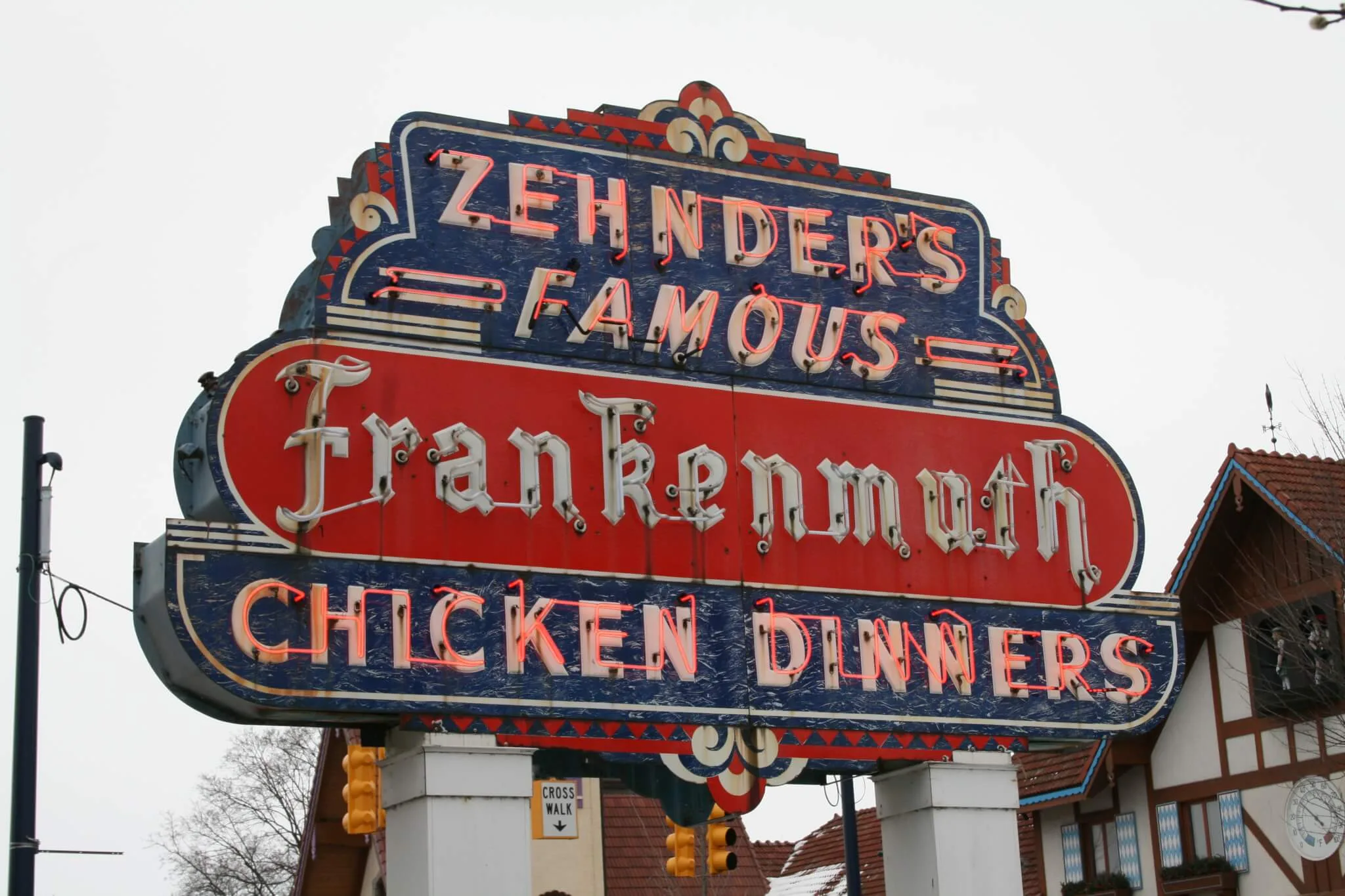
Zehnder's is the largest independent, family-owned restaurant in the US. (designsbykari/flickr)
In our Michigan Moments: Food series, we’re checking out the history behind iconic Michigan foods and beverages. This is the seventh article of the series. Look for a new one every Wednesday!
MICHIGAN — Midwestern cooking often combines culinary traditions from our families’ immigrant backgrounds, locally grown and produced ingredients, and the foods of Indigenous tribes. And in Michigan especially, our home cookin’ includes provisions that were concocted, bottled, and packaged by mitten-state entrepreneurs. If you’re curious about the history of some of your favorite foods and beverages, read on to discover how Michigan history creates Michigan culture.
Frankenmuth Chicken
The Little Bavaria of Frankenmuth is perhaps best known as Michigan’s Christmas wonderland, but its culinary and historical heritage carry stronger German roots. One piece of its German heritage is the famous Frankenmuth family-style chicken dinners, which are traditionally served as a whole parboiled chicken, cut into 10 pieces, and fried with a light breading. In traditional German cuisine style, the chicken is served with mashed potatoes, buttered noodles, vegetables, and cranberry relish.
The two primary Frankenmuth chicken restaurants are Bavarian Inn and Zehnder’s, currently both owned by the same family. However, more than a century ago in 1856, Zehnder’s was the New Exchange Hotel. In 1888, the Bavarian Inn was founded as the Union House Hotel, later the Fischer Hotel. Both hotels were boarding houses for Michigan lumberjacks at the height of Michigan’s lumber trade. The owners of the Fischer Hotel, the Fischer family, are credited as the originators of Frankenmuth chicken. Theodore Fischer and his wife Katherine ran the Fischer Hotel and were the first to promote the all-you-can-eat family style chicken dinners.
The Zehnder family was in the farming and slaughterhouse business and they purchased the New Exchange Hotel in 1928. The Zehnders and the Fischers were in fierce competition, both serving family-style chicken dinners, but it ended when William “Tiny” Zehnder finally purchased Fischer’s from Theodore Fischer’s grandson, Elmer, in 1950. Tiny and his wife Dorothy expanded Fischer’s into its current Bavarian theme in 1959, which was also the beginning of the Frankenmuth Bavarian Festival.
Frankenmuth might never have become Michigan’s “Little Bavaria” without the industrial mind of Tiny Zehnder. Though Tiny passed away in 2006, his wife Dorothy Zehnder remains the co-owner of the Bavarian Inn and still serves up family-style chicken dinners from the Bavarian Inn’s kitchen to this day.
Today, Zehnder’s is the largest independent family restaurant in the United States. Between Zehnder’s and the Bavarian Inn, the family serves up 950,000 pounds of chicken every year. Zehnder’s was honored with an America’s Classics Award by the James Beard Foundation in 2020.
Check out both Zehnder’s and the Bavarian Inn online.

VIDEO: Trump isn’t the only republican facing charges for alleged financial crimes
https://www.tiktok.com/@gandernewsroom/video/7361494909938978090 A whole lot of Michigan Republicans and lobbyists are facing criminal charges for...

VIDEO: It’s expensive to be poor in Michigan
https://www.tiktok.com/@gandernewsroom/video/7361154790300060974 Ever heard of predatory payday loans? Here’s how new laws could help protect...

Here’s everything you need to know about this month’s Mercury retrograde
Does everything in your life feel a little more chaotic than usual? Or do you feel like misunderstandings are cropping up more frequently than they...

The ’Gander wins multiple 2023 Michigan Press Association awards
MICHIGAN—The ’Gander Newsroom has earned multiple awards in the 2023 Michigan Press Association Better Newspaper Contest. The awards were announced...

Michigan Republicans ask Supreme Court to restrict medication abortion access
A lawsuit supported by Republicans could disrupt access to the most common form of abortion—even in Michigan, where reproductive rights are...






